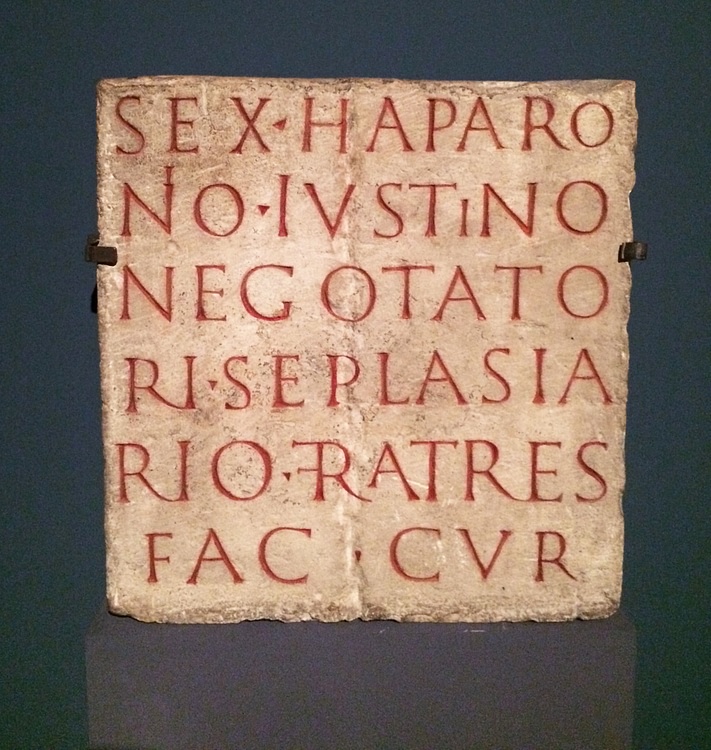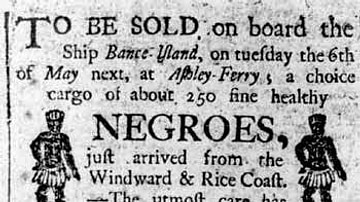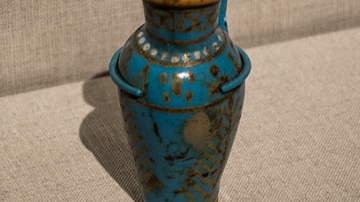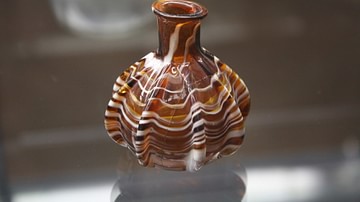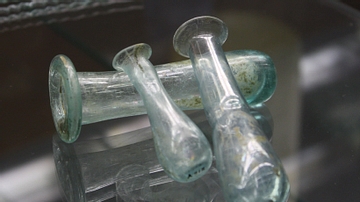Illustration
Sextus Haparonius Iustinus was a "seplasarius" — a trader in perfumes and unguents — who lived in what's present-day Cologne, Germany during the 2nd century CE. When he died, his "brothers" erected a funeral monument of stone in his honor. The inscription, originally set in its masonry, was found in St. Cunibert's Monastery in Cologne. The professional title "seplasarius" comes from the name of a street in Capua, in Campania, Italy. The perfumes created in the workshops there were of such high quality that the street name became a generic term. (Römisch-Germanisches Museum, Cologne)
About the Author
Cite This Work
APA Style
Wiener, J. B. (2017, October 18). Inscription on the Tomb of an Perfume Trader. World History Encyclopedia. Retrieved from https://www.worldhistory.org/image/7455/inscription-on-the-tomb-of-an-perfume-trader/
Chicago Style
Wiener, James Blake. "Inscription on the Tomb of an Perfume Trader." World History Encyclopedia. Last modified October 18, 2017. https://www.worldhistory.org/image/7455/inscription-on-the-tomb-of-an-perfume-trader/.
MLA Style
Wiener, James Blake. "Inscription on the Tomb of an Perfume Trader." World History Encyclopedia. World History Encyclopedia, 18 Oct 2017, https://www.worldhistory.org/image/7455/inscription-on-the-tomb-of-an-perfume-trader/. Web. 29 Jun 2025.

